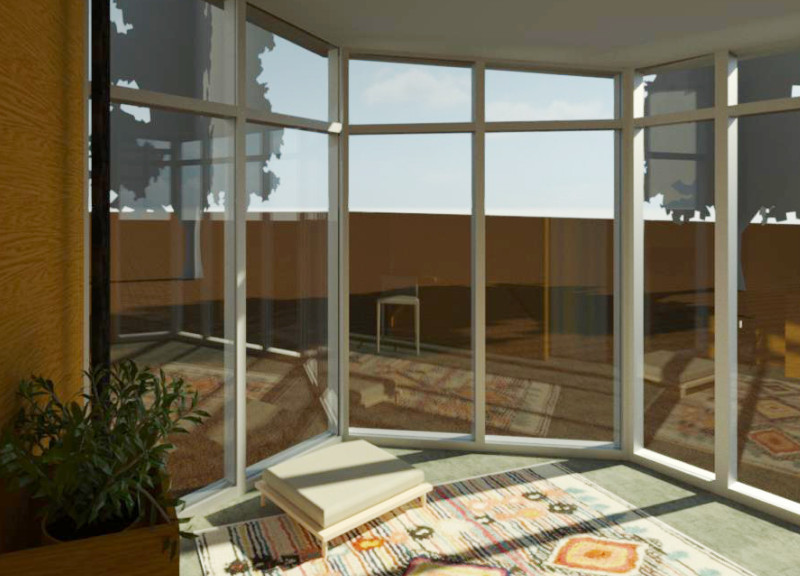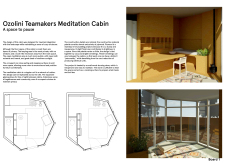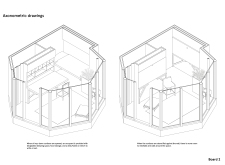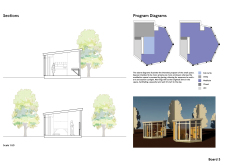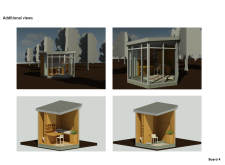5 key facts about this project
The Ozolini Teamakers Meditation Cabin is a carefully designed structure that values simplicity and functionality, providing a dedicated space for meditation and self-reflection. Set within a natural landscape, this project emphasizes the importance of maintaining a connection with the environment while fostering an atmosphere of privacy and tranquility. The cabin is efficiently organized into functional areas that serve multiple purposes, ensuring that each space contributes to the overall experience.
Spatial Organization and Functionality
The architectural design incorporates distinct zones for various activities such as sleeping, eating, and meditative practices. The meditation area is strategically positioned to receive natural light, essential for creating a calming environment. Flexible furniture arrangements allow users to adapt the space to their needs, facilitating a personalized experience. Materials such as plywood and glass are utilized to enhance both durability and aesthetics. Plywood contributes warmth and a natural feel, while large glass windows connect the interior to the surrounding landscape, reinforcing the cabin's role as a sanctuary.
Unique Design Approaches
What distinguishes the Ozolini Cabin from similar architectural projects is its focus on adaptability and community. The compact living quarters are designed for efficiency, allowing for a minimalistic lifestyle that does not compromise comfort. The incorporation of a wood-burning stove not only provides warmth but also serves functional needs for cooking, reflecting a multi-disciplinary approach to cabin design. The architecture encourages both solitude and social interaction among users by situating the cabin within a network of similar structures, promoting a sense of community while ensuring individual privacy.
Sustainable Material Choices
The project's material selection plays a crucial role in its success. Primarily constructed from plywood, the cabin exemplifies sustainable design principles. Plywood is chosen for its lightweight properties and minimal environmental impact, making it suitable for a retreat focused on mindfulness. The expansive glass elements allow for natural light and exterior views while maintaining the cabin's privacy, resulting in an immersive experience that connects users with nature.
To further understand the architectural intricacies of the Ozolini Teamakers Meditation Cabin, consider exploring its architectural plans, sections, and designs in detail. Engaging with the project's presentation will provide greater insight into the innovative architectural ideas that inform its design.


